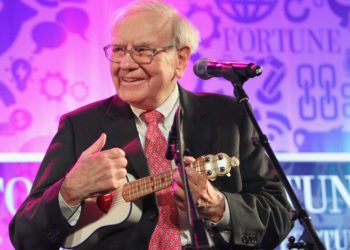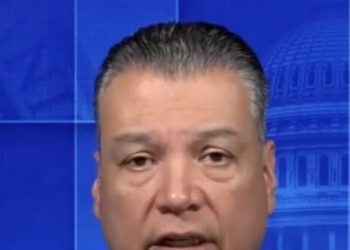As Democrats grapple with how to recover from their losses in November, an uncomfortable question has emerged in California, the state that has long set trends for the party.
Are their leaders simply too old?
Some party activists, pointing to several examples where they say leaders held onto power long past their prime, want to take the political keys away from state and local officeholders at a certain age.
The idea, initiated by San Francisco Democrats in a resolution, will be considered by the statewide party when it holds its convention later this month. Though it is largely a symbolic pursuit, the fact that the conversation is occurring at all is noteworthy in a place known for revering its elder leaders.
California is the state of Dianne Feinstein, who died in office at age 90 in 2023. It is also the home of Jerry Brown, who served two terms as governor in his 70s; Representative Nancy Pelosi, the former House speaker, who is 85; and Barbara Lee, the former congresswoman who was elected last month as Oakland mayor at the age of 78.
Not all of those leaders have caused worry, and some have had significant achievements late in life, bringing the gravitas and fortitude that can come with experience.
But many Democrats still have regrets over Senator Feinstein remaining in office long after major health issues became apparent and questions were raised about her ability to focus and make decisions.
They likewise recall their consternation over Justice Ruth Bader Ginsburg’s decision not to resign from the Supreme Court while President Barack Obama was in office. She died at age 87 late in President Trump’s first term, giving him the opportunity to replace her with a conservative justice.
But it was former President Joseph R. Biden who brought the issue to the fore last year, when he was campaigning at 81. Many Democrats believe he waited too long to bow out, robbing the party of time to mount an effective effort to beat Mr. Trump.
“We can’t just act like it didn’t happen and like we aren’t going to make changes as a result,” Eric Kingsbury, a San Francisco Democrat, said of Mr. Biden’s decline. “Everyone saw it with their own eyes, and a ton of people told them what they saw wasn’t the truth.”
Mr. Kingsbury, 36, is a member of the little-known yet locally powerful San Francisco Democratic County Central Committee. He said he wrote the resolution as a direct response to Mr. Biden staying in the race too long and some Democrats remaining unwilling to even discuss how to clear the way for younger candidates.
His resolution called for exploring a mandatory retirement age for all elected and appointed leaders at the state and local levels, but not federal positions such as Congress. Notably, it did not specify a particular age.
The proposal passed last month, but only after a heated conversation. Some opponents pointed out that Senator Bernie Sanders, an 83-year-old independent from Vermont, is one of the few leaders energizing the left now.
“It’s offensive,” said Connie Chan, 46, a member of the San Francisco Board of Supervisors and of the local party committee who voted no. “It’s ageism. It’s discrimination against people who have experience.”
The resolution will be among hundreds considered by the California Democratic Party at its convention this month, but it may not advance very far. Even if it does, it would take a state law, passed by the Legislature and signed by the governor, to impose an age limit.
If that ever did come to fruition, California would be the first state to force state and local politicians to retire at a certain age. Thirty-one states — but not California — force judges to retire. The most common cutoff is 70, though Vermont allows judges to serve until they are 90.
Age is not only a Democratic worry. Voters last year in North Dakota, a Republican-led state, approved a measure that prohibited candidates from running for Congress if they would turn 81 or older by the end of the year before their term concludes. But the measure did not affect state and local officeholders, and it was likely to face a legal challenge should an octogenarian candidate file suit.
In 2023, Republicans also raised concerns after Senator Mitch McConnell, the Republican leader at the time at age 81, physically froze while taking questions at news conferences.
There are already federal policies that require mandatory retirement for occupations that require intense focus. Airline pilots must retire at 65, air traffic controllers generally must retire at 56 and military officers typically must step aside at 64.
Of course, the person atop the federal executive branch faces no retirement age. While so much focus was on Mr. Biden last year, many Democrats have been quick to point out that Mr. Trump will be 82 by the time his term ends.
“There should be concern about Donald Trump’s age,” said Scott Wiener, a Democratic state senator from San Francisco who believes the president is wreaking havoc on the economy and international relations. He recently abstained from the central committee vote on the age resolution.
Beyond California, David Hogg, the 25-year-old political activist who survived the 2018 school shooting in Parkland, Fla., and is now the vice chair of the Democratic National Committee, has said Democrats must quash the “culture of seniority politics.” Through a separate organization, Leaders We Deserve, he has pledged to spend $20 million to back younger primary candidates against older, entrenched Democrats.
Representative Ro Khanna, 48, Democrat of California, has long urged a generational change in politics, and praised Senator Dick Durbin, 80, of Illinois for his “wisdom” in recently deciding to not seek another term.
Americans seem to support the idea of a mandatory retirement age for officeholders. A Pew Research Center survey from 2023, before Mr. Biden’s age-related difficulties became clear, found that 79 percent of Americans favor age limits for elected officials in Washington, and 74 percent favor them for Supreme Court justices.
Some residents in Northern California said that a mandatory retirement age might make sense, though they recognized the delicacy of the topic. Marcelle Maldonado, a 67-year-old retiree in Dixon, Calif., said she believed that politicians should retire by 65 or 70 to make room for people with “fresh eyes and fresh ears.” But she was not optimistic that such a mandate would pass because the politicians themselves would have to approve it.
In Oakland, Nicole Barratt, a 30-year-old employee at a plant shop, said that she found it odd that many professions required people to retire by age 65, but the country’s leaders have no such rule.
“They become very isolated after they’ve been in office a really long time,” she said.
Several politicians older than 70 did not return requests for comment. That included Ms. Lee, who will be sworn in later this month as Oakland mayor, and Antonio Villaraigosa, 72, a former Los Angeles mayor who is running for California governor in the 2026 race.
John Burton, the former congressman from San Francisco who stepped down as California Democratic Party chairman eight years ago, said he did not like the idea of term limits or age limits. He took umbrage at the notion that he is getting up in age.
“Jesus, don’t call me an elder statesman,” he grumbled in his trademark prickly style. “I’ve never heard that used to describe me.”
He is 92.
John Laird, a 75-year-old state senator from Santa Cruz, said the idea of an age limit was “arbitrary and silly” and that he felt sharper and more engaged than when he was elected to the Santa Cruz City Council at age 31.
He added that California’s term limits help solve the problem. He will be termed out when he is 78.
“My staff was having a field day telling me what to say when you called,” he said with a laugh. “‘Wait, I can’t hear you!’ and ‘Wait, my cardiologist is on the other line!’”
Any legislation instating an age cap would, if passed, head to the desk of 57-year-old Gov. Gavin Newsom — and he is not a big fan. He said that politicians need “the qualities of youth” such as imagination and sharpness, but that those attributes do not decline at the same age for each person.
“We all process life, physically and emotionally, a little differently,” he said.
Some Democrats observed that if California had tried to impose an age limit on members of Congress, Ms. Pelosi would not have been speaker the second time around, nor would she have wielded the influence she still has as a congresswoman. Among her acts last year was to push President Biden to leave the 2024 race.
Last month, the San Francisco central committee resolution passed with 15 aye votes, eight nays and eight abstentions.
One committee member might have felt stronger than the others.
Ms. Pelosi, through a representative, cast a vote against the age limit. She has not said yet whether she will run for another term next year.
Coral Murphy Marcos contributed reporting from Oakland, Calif.
Heather Knight is a reporter in San Francisco, leading The Times’s coverage of the Bay Area and Northern California.
Laurel Rosenhall is a Sacramento-based reporter covering California politics and government for The Times.
The post Are Politicians Too Old? California Democrats Want to Debate an Age Cap. appeared first on New York Times.




